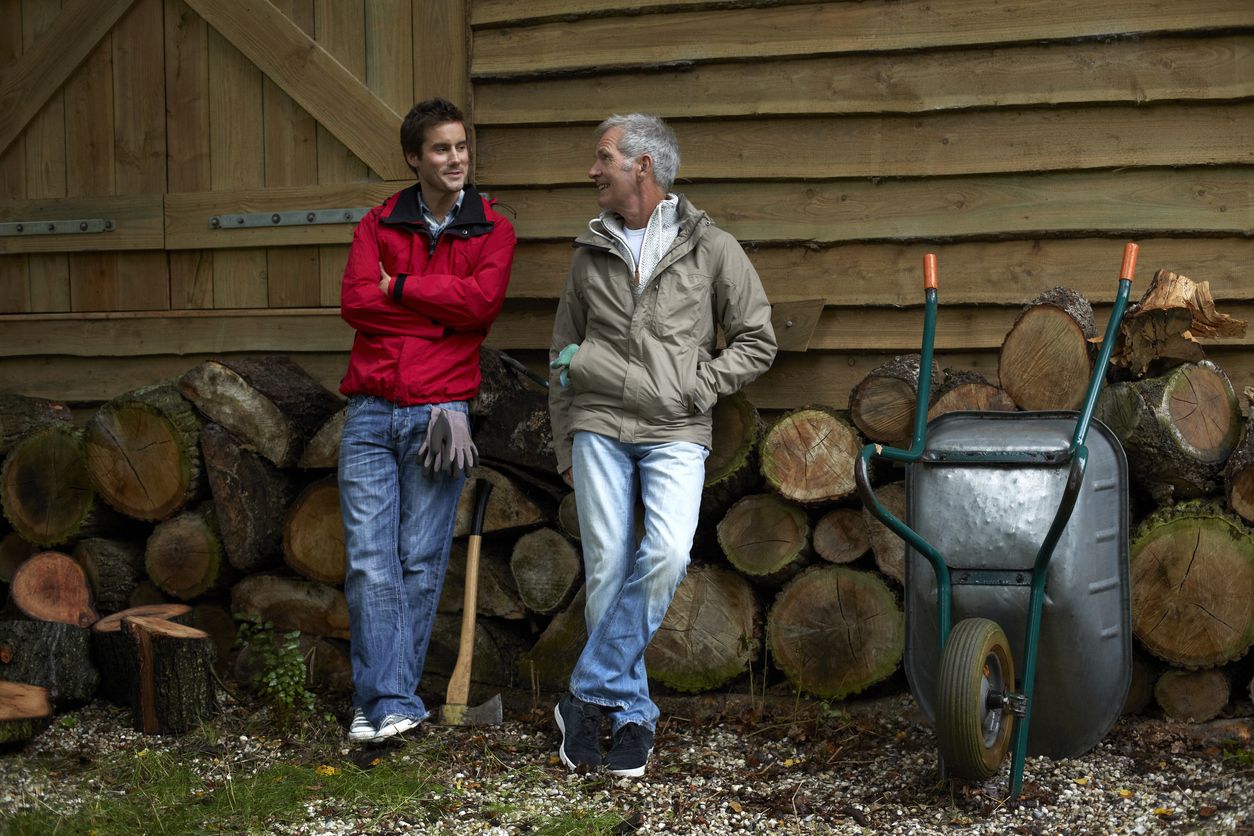If you’re looking for love outside yourself, you’ll be looking for a very long time. Feeling and experiencing love are dependent on how much we love and accept ourselves. And inner peace and a sense of well-being are by-products of the quality of your self-love and acceptance.
If inner peace is an inside job, then why do so many people wrestle with a harsh, inner critic and self-loathing? And is it possible to achieve lasting inner peace, or is it only a pipe dream? How to find inner peace? Are there actions you can take to find YOUR inner peace?

Whatever We Repeat Becomes an Unconscious Algorithm
Our brains are giant computers, and we are the programmers. Our experiences and the choices we’ve made and continue to make form a set of rules called beliefs. Beliefs work much like an algorithm on a computer. To state it ultra-simple: an algorithm is a set of rules designed to create and safeguard a specific result. In the book, Algorithms to Live By, the Authors Brian Christian and Tom Griffiths define it this way:

An algorithm is just a finite sequence of steps used to solve a problem, and algorithms are much broader—and older by far—than the computer. Long before algorithms were ever used by machines, they were used by people….
When you make bread from a recipe, you’re following an algorithm. When you knit a sweater from a pattern, you’re following an algorithm…. looking through the lens of computer science can teach us about the nature of the human mind, the meaning of rationality, and the oldest question of all: how to live.
Are Limiting Beliefs Keeping You Stuck?
While growing up, we formed certain behaviors to obtain safety, attention, and love or to handle overwhelming, sometimes traumatic experiences. The ways we think and feel started early in the developmental years. Many of the rules of our personal algorithm were downloaded when we were too young to remember. The brain’s number one priority is safety; therefore, many of our “rules” sprouted from our need for security.
Fast forward to your present-day: you've practiced these repetitive thoughts, feelings, and behaviors for decades. Now, they are so familiar that you mistake them for who you are. These unconscious mindsets and emotional patterns became comfortable like a pair of cozy slippers and cherished as if a family heirloom. A person says, “it’s just the way I am” because it is all they have known. This blindspot is one of the reasons people tolerate unhealthy habits, such as self-criticism and self-loathing, even when the behaviors don’t serve their best selves and work against the quality of life that they crave.
These repetitive thoughts and emotions are memorized and automated. You’ve rehearsed them so frequently that they have become limiting beliefs that continue to control your perspective and actions. Even though you formed these responses when young for a good reason, most often, they now inhibit your inner peace and happiness.
As adults, we must learn healthier ways to get our needs met and to dismantle and replace our false beliefs.
Learn more about beliefs: “The Truth About Limiting Beliefs: A Double Bind.”
If you want inner peace and to develop self-compassion, you’ll need to rewrite these outdated programs of thinking and feeling.
Sound difficult?
It’s actually pretty simple. Any kindergartener can reprogram their thoughts and emotions when given the right formula! Yet, change requires commitment and focused attention. Are you ready for a better life?

How to Find Inner Peace: Steps to Increase Self-Love and Happiness
STEP 1: Score yourself on a happiness meter.
Think about your overall happiness right now. On a scale of 1-10, ten means you’re ecstatic, and everything is awesome; one means you’re miserable, and life is hard, depressing, and full of drama.
If you’re depressed and it’s hard even to make it through the day, your life needs attention. Perhaps you’d score yourself between two and three. If your life is decent, but you’re not thrilled with life in general, your happiness meter could land between four and six.
Or maybe you’ve done some personal growth work. You’re setting better boundaries, your self-care has improved dramatically, and you might have received a recent promotion, but you still want greater fulfillment and well-being. You might mark your happiness meter at a six or a seven as below.
How would you rate yourself on the happiness meter? Write down your number.
Happiness Meter
| 1 | 2 | 3 | 4 | 5 | 6 | 7 | 8 | 9 | 10 |
STEP 2: List the specific things you’d like to improve.
We can’t change anything if we don’t know what’s wrong. Remember that algorithm I mentioned earlier. We need new rules and wiser sequences of thoughts, emotions, and behavior to change our lives.
Write a list of all the things that are problematic, irritating, and troublesome. For example, "I don't have enough money," or "I work too much," or "I'm lonely and depressed.” Or “I’m overweight and out of shape.” The chances are that the longer your list, the lower your happiness meter.
STEP 3: List actions for the things that are depleting your happiness.
Write across from each one of your complaints in Step 2 an action item to improve it. For instance, “I don’t have enough money.” Write the amount you'd like to earn and an action to achieve it. Do you want to earn $80,000 a year in your career, or is it more important to have an emergency fund of $5,000 stashed away? Write just one action for each item that is lacking in your life. Only one. And make it specific and actionable.
STEP 4: Prioritize the items on your list.
You can’t change everything at once, so it’s vital that you assess what’s most important to you. Your priorities might surprise you.
There are different ways to prioritize. You could choose your top priority by what would make the most significant difference in your life if this area changed. Or you can simply base priorities on your core values and where you want to begin to make a change, i.e., self-care or more time with your family.
For example, one client I worked with loved travel. However, he was also very tight with his money. To honor his value of frugality AND meet his need to travel, he had to either find ways to travel inexpensively, earn more to feel comfortable spending more, or create a savings account dedicated for trips that would support his value. We discussed it at length. He decided to make his yearning to travel a high priority.

STEP 5: Take small actions toward your top priority.
Once you’ve decided on your priorities, now it’s time for action. It is far better to take a small action consistently than try to make too big of a step and then fall back into old ways of being. Begin with your top priority. Start small. Take action.
When my client (mentioned above) got to this step, he decided his first action was to plan little outings in the area inexpensively, i.e., camping, weekends at different hot springs, and visiting museums (he was a history buff.) Next, after he consistently followed through with these smaller adventures, he then set up a savings account dedicated to travel. He planned a month-long trip figuring out exactly how much he would need to save and how he would cover his work. He set a timeline to make his adventure a reality. His dream came true!
You can use the steps above over and over to achieve greater happiness. Each time you fulfill one priority, start on the next!
Making ourselves and what is important to us a priority is a part of self-love. When we know what makes us happy but do nothing to fulfill those desires, it causes discouragement and disappointment. Unhappiness is a symptom of inaction and a sign of a lack of self-love.
If you're super committed to changing the quality of your inner world and want to repattern your personal algorithm, develop the habits below.
Related reading: "Find Inner Peace through Self-Acceptance."

How to Develop Self-Love and a Healthy, Loving Algorithm
Here are five ways to love yourself. Investing in yourself in small ways will naturally raise your happiness meter.
SELF-LOVE PRACTICE #1Do what you love every day.
If you’re not already doing things that bring you joy, this is a must. However, begin this practice once a week, then twice a week, then increase doing things you love more consistently as you strengthen the muscle of self-love.
And if you don’t know what makes you happy, that’s your first step: find out! All the answers are inside of you.
No one can take care of you, but YOU. By ignoring your needs, you perpetuate self-loathing and unhappiness. By regularly meeting your needs for sleep, relaxation, healthy meals, exercise, socializing, and recreation, you’ll feel better about yourself. If you don’t put yourself first, who will?
Dive deeper into self-care: “What’s All the Fuss About Self-Care?”
Your feelings are your personal GPS. Stuffing your emotions will never result in happiness or increased inner peace. Emotions are there to guide you. When feeling sad, lonely, or bored, ask yourself, “What is one thing I can do to feel just a little better?” Then, take that action. When you feel a tad better, ask again. Pretty soon after practicing this form of mindfulness for a while, you’ll begin to feel renewed. And the more you act on the wisdom of your emotions, the faster you’ll program a new algorithm.
Related reading: "How to Find Inner Peace by Resolving Conflicted Feelings."
If you want to understand your emotions better, try our free webinar titled, "How to Use the Emotions to Make Life-Changing Transformation."
SELF-LOVE PRACTICE #4
Replace the inner critic with encouraging self-talk.
One of the biggest drains to inner peace is allowing negative self-talk and your inner critic carte blanche. Chatter that is unkind needs to be pruned! Ask yourself, “Would I say this to a close friend?” If you have children, ask, “Would I say this to my child?” If not, then don’t say it to yourself. Be kind to yourself and practice self-compassion.
Another common mistake on the path of becoming is DOING without allowing time for just being. We often develop high productivity as a strategy to prove we are valuable or worthy of love, to compensate for poor self-esteem, or to avoid uncomfortable feelings. You are lovable even when you do nothing.

When we care for ourselves, a natural side-effect is feeling loved.
When we listen and act on our truth, the result is confidence.
When we honor our preferences, our dreams, and goals, our life becomes more vibrant and happier.
Happiness stems from loving ourselves in little and big ways every day. The more we love ourselves, the more peaceful we become, and then we care for ourselves even better. Now the algorithm (the inner set of rules) and the patterns we set in motion support happiness and well-being. Then, self-compassion and self-love blossom more each day. And lasting inner peace IS possible.
Loving yourself is THE most remarkable and meaningful work (and play) you will ever do. And the rewards are vast. Start today.
If you’d like to accelerate the process, Heartmanity developed a One Year Makeover for this journey. If you’re looking for a mentor on the path of self-love, we specialize in leading people back to their inner truth while empowering them to take effective action. Transforming lives is our business!










